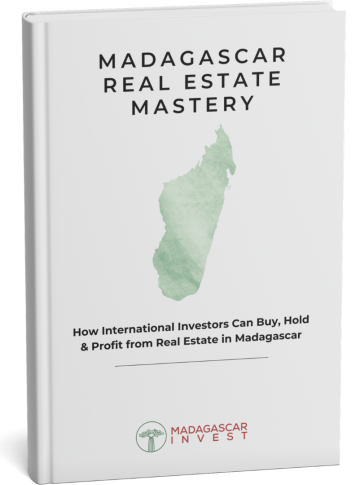Si l’on considère les destinations d’investissement en Afrique de l’Est et dans l’océan Indien, Madagascar et le Kenya offrent des paysages contrastés.
Si le Kenya est un pôle régional bien établi, Madagascar représente un marché pionnier au vaste potentiel inexploité. Cet article offre un aperçu aux investisseurs commerciaux afin de leur permettre de peser le pour et le contre de chaque option.
Aperçu géographique
Kenya
Situé sur la côte est-africaine, son emplacement stratégique en fait une porte d'entrée vers le plus grand marché est-africain et un centre commercial régional clé.
Le Kenya couvre une superficie d'environ 580 367 kilomètres carrés, comparable à celle de Madagascar. Il présente des paysages variés, notamment des plaines côtières, des terres arides et semi-arides, des hauts plateaux fertiles et la vallée du Grand Rift, qui traverse le pays.
Sa faune, notamment dans ses vastes parcs nationaux et réserves, est mondialement connue, ce qui stimule un secteur touristique dynamique.
Le climat du Kenya varie considérablement selon les régions. La côte est chaude et humide, tandis que les hautes terres, dont Nairobi, bénéficient d'un climat tempéré.
Les régions du nord et du nord-est sont arides et semi-arides. Le Kenya connaît deux principales saisons des pluies : les « grandes pluies » de mars à mai et les « petites pluies » d’octobre à décembre. Le pays est également vulnérable aux effets du changement climatique, notamment aux sécheresses et aux inondations.
Madagascar
Madagascar est une grande nation insulaire située dans l'océan Indien, à environ 400 kilomètres (250 miles) au large de la côte est de l'Afrique australe, à l'est du Mozambique.
Sa nature insulaire signifie qu'il est moins directement intégré aux routes commerciales continentales africaines que le Kenya.
Quatrième plus grande île du monde, Madagascar s'étend sur 587 040 kilomètres carrés (226 660 miles carrés). Elle est mondialement connue pour son extraordinaire biodiversité, la grande majorité de sa flore et de sa faune étant introuvable ailleurs sur Terre.
Madagascar bénéficie d'un climat diversifié en raison de sa superficie et de sa topographie variée. La côte est est généralement chaude et humide, avec des précipitations importantes, tandis que les hautes terres centrales bénéficient d'un climat plus tempéré et plus frais. L'ouest et le sud-ouest sont plus secs, avec des conditions semi-arides par endroits. Le pays est exposé aux cyclones tropicaux, notamment pendant la saison des pluies (de novembre à avril), qui peuvent impacter l'agriculture et les infrastructures.
Aperçu et perspectives économiques
Kenya
Le Kenya possède une économie plus robuste et diversifiée que celle de Madagascar. C'est une puissance économique régionale dotée d'un important secteur des services, de services financiers performants et d'une base industrielle en pleine croissance.
La croissance de son PIB a été relativement forte (environ 4,71 TP3T en 2024, projetée à 5,31 TP3T en 2025), bien qu'elle soit confrontée à des défis tels qu'une dette publique élevée (environ 65,51 TP3T du PIB) et des taux de prêt élevés.
Le gouvernement kenyan recherche activement des investissements directs étrangers (IDE) et a mis en œuvre des réformes fiscales et réglementaires pour améliorer le climat d’investissement.
Madagascar
Madagascar demeure l'un des pays les plus pauvres du monde, avec un taux de pauvreté élevé. Le pays possède néanmoins d'abondantes ressources naturelles (minérales, agricoles et marines) offrant de nombreuses opportunités commerciales.
Attirer les investissements étrangers et promouvoir le développement économique font partie des priorités du gouvernement, avec la promulgation de la nouvelle loi sur les investissements en 2023.
La croissance devrait donc atteindre en moyenne 4,7% entre 2025 et 2027, la production industrielle (y compris les textiles et les mines) et les services devant mener l’expansion.
Principales opportunités d'investissement
Les deux pays ont leurs propres secteurs clés, offrant des opportunités aux investisseurs potentiels.
Kenya
- Fabrication : un point d’entrée stratégique dans un marché dynamique et en croissance, avec l’engagement du gouvernement en faveur de l’industrialisation.
- Agriculture : Opportunités dans l’agroalimentaire, notamment grâce à de meilleures prévisions de précipitations et à la demande de produits alimentaires diversifiés et de grande valeur.
- TIC et BPO : le Kenya est un pôle d’innovation technologique de premier plan en Afrique subsaharienne (« Silicon Savannah »).
- Services financiers : les marchés de capitaux les plus profonds et les plus sophistiqués d’Afrique de l’Est.
Madagascar
- Exploitation minière : Grandes quantités de ressources minérales (pierres précieuses, pierres industrielles, pétrole, métaux rares). Forte demande mondiale de minéraux comme le graphite, le nickel et le cobalt.
- Agroalimentaire : Vaste potentiel agricole, climat favorable à des cultures variées, marché de l'agriculture biologique en pleine croissance, transformation de fruits/légumes, d'huiles essentielles et secteur clé de la pêche.
- Tourisme : Sa biodiversité unique et ses attraits naturels en font une destination touristique sous-estimée, mais dotée d'un fort potentiel de croissance, notamment dans l'écotourisme. Le gouvernement a identifié de nombreux sites d'investissement.
- Textiles, vêtements et accessoires : Premier exportateur d'Afrique subsaharienne vers l'Europe, avec une main-d'œuvre qualifiée et des coûts compétitifs. Bénéficie de l'AGOA et de l'EPA.
- TIC : la connexion Internet haut débit la plus rapide d’Afrique, avec des exonérations fiscales pour les nouvelles entreprises et des coûts de main-d’œuvre compétitifs.
Considérations pratiques pour les expatriés
Kenya
Les langues officielles sont le swahili et l'anglais. L'anglais est largement utilisé dans les affaires, l'éducation et l'administration, ce qui facilite l'intégration des expatriés anglophones.
La connectivité Internet et mobile est plus répandue et généralement plus fiable qu'à Madagascar. Nairobi est une plaque tournante régionale majeure avec une excellente connectivité aérienne internationale.
Niveau de vie et infrastructures : Le niveau de vie au Kenya, en particulier dans des villes comme Nairobi, est plus élevé qu'à Madagascar. La communauté expatriée y est plus développée, avec un plus large choix de logements, d'écoles internationales et de centres de santé.
L'infrastructure générale est plus robuste, offrant un mode de vie plus confortable aux expatriés. Le coût de la vie à Nairobi peut être comparable à celui de certaines villes occidentales pour certains biens et services.
Madagascar
Les langues officielles sont le malgache et le français. Si le français est largement utilisé dans les affaires, au sein du gouvernement et parmi la population instruite, le malgache est la langue nationale et est parlé par tous.
Alors que de plus en plus de jeunes sont anglophones, avec un niveau B1 ou B2, la maîtrise du français est très bénéfique pour les expatriés.
L'accès à Internet est disponible dans les grandes villes, avec des débits parmi les plus rapides d'Afrique. La couverture mobile est étendue dans les zones urbaines.
Les vols directs vers Antananarivo ont repris depuis divers hubs internationaux (par exemple Paris, Addis-Abeba, Nairobi).
Le niveau de vie à Madagascar est généralement bas, avec un taux de pauvreté élevé. L'accès à un logement de qualité, aux soins de santé et à l'éducation peut être limité, surtout en dehors d'Antananarivo.
Les infrastructures constituent un défi majeur, impactant la vie quotidienne et augmentant le coût de la vie et des affaires. Les pannes de courant sont fréquentes.
Quel pays est fait pour vous ?
| Critères | Choisissez le Kenya si | Choisissez Madagascar si |
| Maturité du marché | Marché établi et diversifié avec une clientèle plus large | Marché frontière au potentiel inexploité |
| Infrastructures et environnement juridique | Des infrastructures plus solides, un secteur financier plus développé, une plus grande prévisibilité juridique | Des défis plus importants en matière d'infrastructures, de bureaucratie et de gouvernance |
| Position régionale | Centre régional de la Communauté de l'Afrique de l'Est | Marché émergent, plus isolé |
| Expatriés et commodités | Un environnement d'expatriation plus facile avec de meilleurs équipements et services | Soutien aux expatriés moins développé ; expérience locale immersive |
| Secteurs d'investissement | Services financiers, technologie, agriculture et fabrication | Exploitation minière, agroalimentaire à grande échelle, écotourisme, informatique, vêtements |
Madagascar et le Kenya offrent tous deux des opportunités et des défis uniques aux investisseurs. Le choix dépend en fin de compte de vos préférences.
Si vous recherchez des informations plus approfondies et des conseils personnalisés concernant l'investissement à Madagascar, Madagascar Invest Nous pouvons vous aider. Notre expertise locale et notre présence sur le terrain faciliteront le processus pour vous aider à investir ou à développer votre activité.




